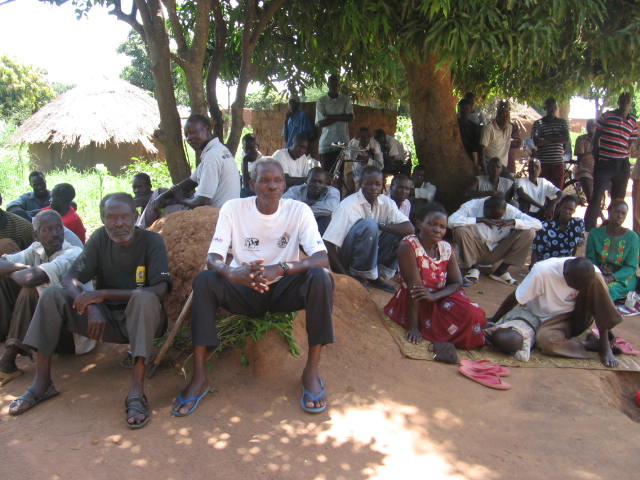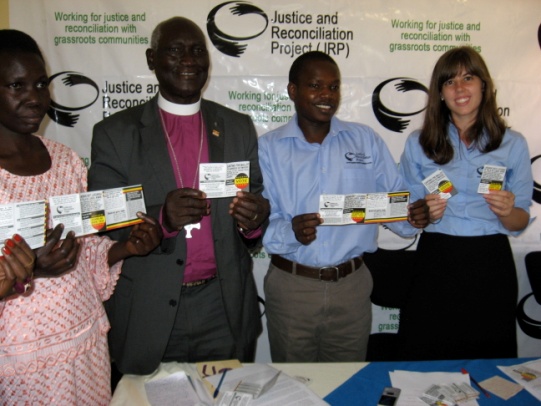“LRA survivors want marshal plan for region,” Daily Monitor, 28 April 2011
http://www.monitor.co.ug/News/National/-/688334/1152202/-/c262ngz/-/index.html
By James Eriku
Amuru
April 20 is usually an important day in the lives of former displaced persons living in Atiak Sub-county in Amuru district. And for the Acholi sub-region, the day was set apart to commemorate the gruesome massacre of over 200 civilians by the Lords Resistance Army rebels in 1996, although other similar cases were committed in Lokodi, Lukome, Mucwini and Barlonyo.
The Rev. Johnson Gakumba, the chairman of the Acholi Religious Leaders Peace Initiative and the bishop of the Northern Uganda Diocese, while presiding over the occasion last Wednesday, prayed that such atrocities are not repeated in the region.
Meaningful reparation
The bishop also urged the government to develop meaningful reparation programmes for those who died during the war, adding that the government should also initiate other efforts to improve the lives of survivors. He said reparation could be such an important component of the Juba peace talks, in particularly agenda three, where reconciliation and accountability issues sound pertinent.
Mr Jacob Nokrach, a survivor and the chairman of the Atiak Massacre Survivors Association, said government has abandoned them to NGOs. Justice and reconciliation project, an NGO in the region, is currently supporting the survivors with counselling and guidance. “Many people can now talk freely about the incident more than 10 years ago, which is a positive gesture towards the rehabilitation efforts in the region,” Mr Nokrach said.
Improving livelihood
Mr Nokrach said the commemoration of the day is important to the lives of the survivors and relatives of those who were killed in the attack. The survivors’ chairman said a Marshal Plan should be drawn by the government as the Acholi people emerged from the rubbles of the camps, saying a reparation of Shs5 million per survivor and those killed would go a long way in improving the livelihoods of the affected people.
Ms Irene Oyet, another survivor from Ayugi village, sarcastically said the only thing the attack left her with were the mutilated bodies of her siblings on their compound three hours after the rebels had left. Ms Pasca Aromorach, 18, said she grew up as an orphan after her parents were killed in the attack. She said she was left to raise seven of her siblings amid biting poverty.



